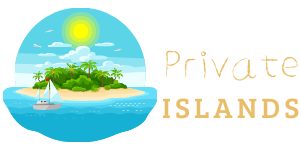The world is full of enticing archipelagos and private islands — but do you need to be one of the very wealthy to purchase your own piece of paradise? That depends on your goals. “If you want to arrive by seaplane and have personal chefs, housekeepers, caretakers, boat captains, all of that,” says Jacques Menahem, founder of French Polynesia Sotheby’s International Realty in Auckland, New Zealand, “you probably need millions or billions.” But if you’re looking for a place where you can just be in nature and enjoy the peace and tranquility it provides, an island can be much more affordable, especially in colder climates where island costs are often lower than tropical ones.
What’s more, there’s a higher rental-income potential with private islands than mainland waterfront property. And the experience of living on an island — as opposed to vacationing there — can bring families closer together and provide a sense of adventure that’s harder to find in today’s fast-paced, hyperconnected world.
There are many factors to consider when buying an island, including the extent of development. The more built-out an island is, the more expensive it will be; and even a pristine, undeveloped island can still cost a fortune. Building materials need to be shipped or flown in, water systems and utilities established, a staff hired, and laws and regulations to comply with.
And then there’s the environmental impact to keep in mind, because many of these remote places are home to fragile ecosystems that are largely untouched by humans. The process of turning a remote island into a residential community can disrupt that balance, and some countries prohibit noncitizens from purchasing islands at all.
But despite the hurdles, the appeal of owning a private island is strong. “There is an obsession, an enthusiasm for islands,” HGTV host Chris Krolow says of his own Belizean island. The cofounder of private-island company Private Islands Inc and owner of Gladden Caye, a resort on the country’s barrier reef, Krolow sees his business as an opportunity to offer something genuinely unique.
That’s because he believes the “fever for owning an island is here to stay.” In fact, he says, he gets as many as 10 e-mails a day from people asking about buying an island. And the number is rising, he adds. “We have seen a huge uptick over the past couple of years.” So how do you get your own private slice of paradise? Here are some tips to help you navigate the tricky waters of island ownership.
